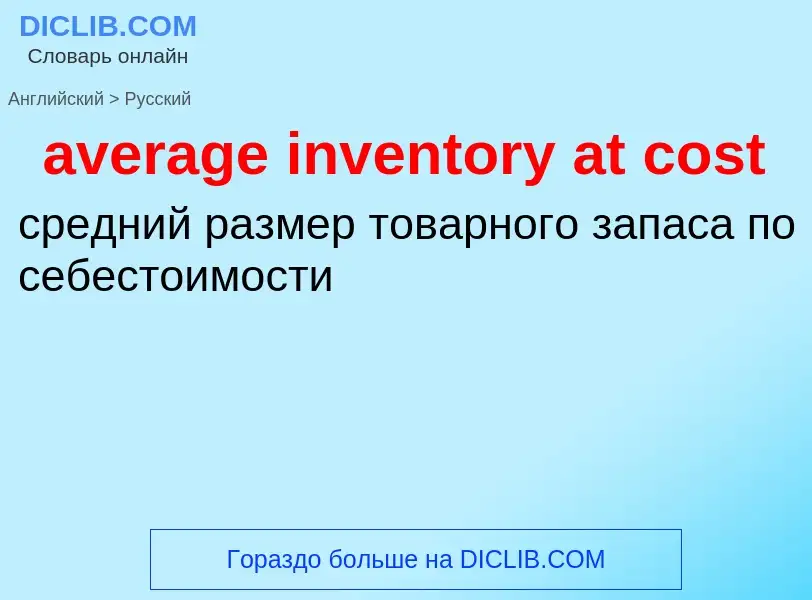Traduzione e analisi delle parole tramite l'intelligenza artificiale ChatGPT
In questa pagina puoi ottenere un'analisi dettagliata di una parola o frase, prodotta utilizzando la migliore tecnologia di intelligenza artificiale fino ad oggi:
- come viene usata la parola
- frequenza di utilizzo
- è usato più spesso nel discorso orale o scritto
- opzioni di traduzione delle parole
- esempi di utilizzo (varie frasi con traduzione)
- etimologia
average inventory at cost - traduzione in russo
Смотрите также
бухгалтерский учет
затраты на поддержание запасов [по поддержанию запасов] (затраты на создание и хранение товарных запасов (капитальные вложения и текущие затраты, связанные с созданием и эксплуатацией мощностей по хранению товарных запасов, а также расходы на закупку запасаемых товаров) плюс затраты по подготовке запасов к использованию (совокупность капитальных и текущих затрат, связанных с передачей запасов в производство))
экономика
стоимость хранения
Смотрите также
Definizione
Wikipedia
Dollar cost averaging (DCA) is an investment strategy that aims to apply value investing principles to regular investment. The term was first coined by Benjamin Graham in his book The Intelligent Investor. Graham writes that dollar cost averaging "means simply that the practitioner invests in common stocks the same number of dollars each month or each quarter. In this way he buys more shares when the market is low than when it is high, and he is likely to end up with a satisfactory overall price for all his holdings."
Dollar cost averaging is also called pound-cost averaging (in the UK), and, irrespective of currency, unit cost averaging, incremental trading, or the cost average effect. It should not be confused with the constant dollar plan, which is a form of rebalancing investments.
The technique is so called because of its potential for reducing the average cost of shares bought. As the number of shares that can be bought for a fixed amount of money varies inversely with their price, DCA effectively leads to more shares being purchased when their price is low and fewer when they are expensive. As a result, DCA can lower the total average cost per share of the investment, giving the investor a lower overall cost for the shares purchased over time. The alternate strategies are to purchase a fixed number of shares each time period, or to save up the funds that are available for investment and attempt to purchase shares at times when the market is low, ie market timing. A major advantage for the investor using DCA is not having to make a decision on a day to day basis about the best time to invest the funds, but there are obvious advantages in simplicity and also in promoting habitual or automated regular investing.

